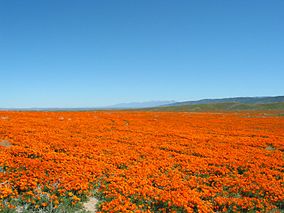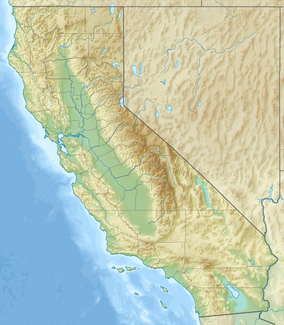| Antelope Valley California Poppy Reserve | |
|---|---|
IUCN category V (protected landscape/seascape)[1] | |
 A field of California poppies | |
| Location | Los Angeles County, California, United States |
| Nearest city | Lancaster, California |
| Coordinates | 34°43′39″N 118°23′41″W / 34.72750°N 118.39472°W |
| Area | 1,781 acres (7.21 km2) |
| Established | 1976 |
| Governing body | California Department of Parks and Recreation |
Antelope Valley California Poppy Reserve is a state-protected reserve of California, United States, harboring the most consistent blooms of California poppies, the state flower. The reserve is located in the rural west side of Antelope Valley in northern Los Angeles County, 15 miles (24 km) west of Lancaster. To the north is Kern County. The reserve is at an elevation ranging from 2,600 to 3,000 feet (790 to 910 m) above sea level, in the Mojave Desert climate zone. The reserve is administered by the California Department of Parks and Recreation. Other wildflowers within the reserve include the Owl's Clover, Lupine, Goldfields, Cream Cups and Coreopsis.

